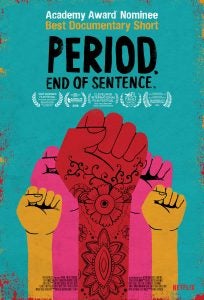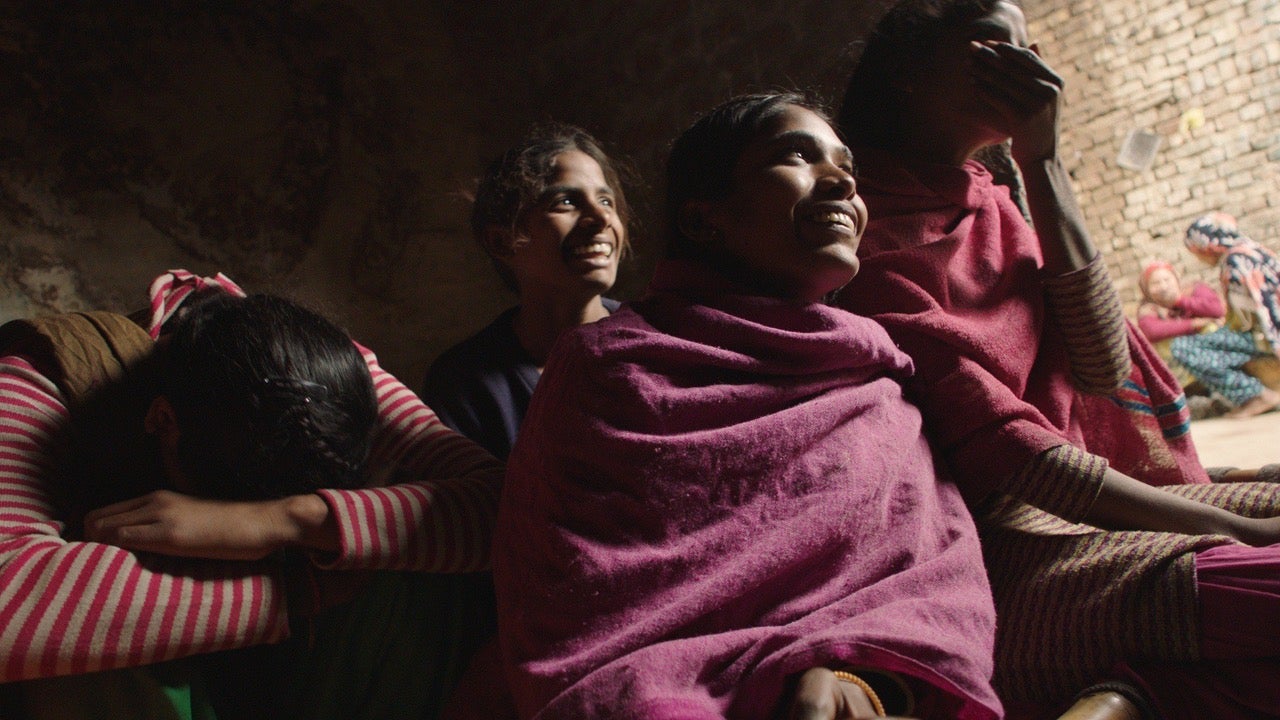Penn sophomore could win an Oscar, ‘Period. End of Sentence.’
Claire Sliney wants to destigmatize periods with the film, “Period. End of Sentence.” The Penn sophomore made the documentary with friends while she was still in high school.

University of Pennsylvania sophomore, Claire Sliney is up for an Academy Award for Best Documentary Short for her work on “Period. End of Sentence.” (Eric Sucar/University of Pennsylvania Communications)
As a teen, Claire Sliney set out to destigmatize periods for girls in developing countries. On Sunday, a short documentary about those efforts could win an Oscar.
Now a University of Pennsylvania sophomore, Sliney is back in California to attend the Academy Awards.
The documentary “Period. End of Sentence.” builds on a project that started when Sliney was in high school.

About six years ago — when Sliney still lived in California — some of her friends went to a hearing before the U.N. Commission on the Status of Women. There they learned that, in some developing countries, women don’t have access to sanitary pads.
When classmates reported what they’d learned to Sliney and others, the group decided to take action, eventually creating the nonprofit Pad Project.
“They didn’t have access to the right materials, they were using cloth from old clothing,” said Sliney, adding some women didn’t understand menstruation.
Other young women dropped out of school because of the logistics behind swapping out the cloths.
The group raised about $45,000 and bought a pad-making machine, said Sliney.
Arunachalam Muruganantham, a man from India, designed the machine, which can produce affordable, high-quality sanitary napkins.
Muruganantham’s intent, which Sliney and her classmates adhered to, was to have the women produce the pads themselves.
The women would produce affordable napkins, sell them to other women at a low cost while destigmatizing periods and earning an income from their work.
With the help of Action India, Sliney and her classmates were able to settle on sending the machine to a village in the Hapur District of India — about 37 miles from New Delhi — with a year’s worth of raw materials to kick off production.
Casting a light on stigma
Then they came up with the idea to document the arrival of the machine.
“The goal, always, since the very beginning, was to use this film as an educational tool and to use it to educate people all over the world about the stigma surrounding menstruation,” said Sliney.
In the opening minutes of the film, young teens and older women giggle or shy away when asked about their periods and the use of sanitary napkins. One older woman explains only God knows what a period is.

One young woman describes the difficulty of going to school while on her period, which is why she ultimately drops out.
Young men ask the filmmakers if by periods, they mean the kind schools ring a bell for — a class period. Another tells them that he thinks it’s an illness that mostly girls get.
The film shows the process of making the sanitary pads and the uphill battle of selling them.
It documents conversations with older men, some who at first think the machine produces diapers.
Sliney is one of the executive producers on the documentary that’s available on Netflix.
She said an Oscar nod was never on the group’s radar, but she welcomes the recognition.
“The fact that we’re able to use this incredible prestigious platform to spread that conversation even wider I think is what is the biggest deal for all of us.”
Sliney said the group of filmmakers also wants to draw attention to problems for American women who face similar hygienic problems because of homelessness and poverty.
Peter Decherney, director of Penn’s Cinema and Media Studies program, said he believes Sliney is the first Penn student nominated for an Oscar while still enrolled at the university.
If the film wins, Sliney would join John Legend, Wendy Finerman, and Morgan Neville, a few Penn alumni who have won Oscars.
Rayka Zehtabchi directed the documentary.
WHYY is your source for fact-based, in-depth journalism and information. As a nonprofit organization, we rely on financial support from readers like you. Please give today.





